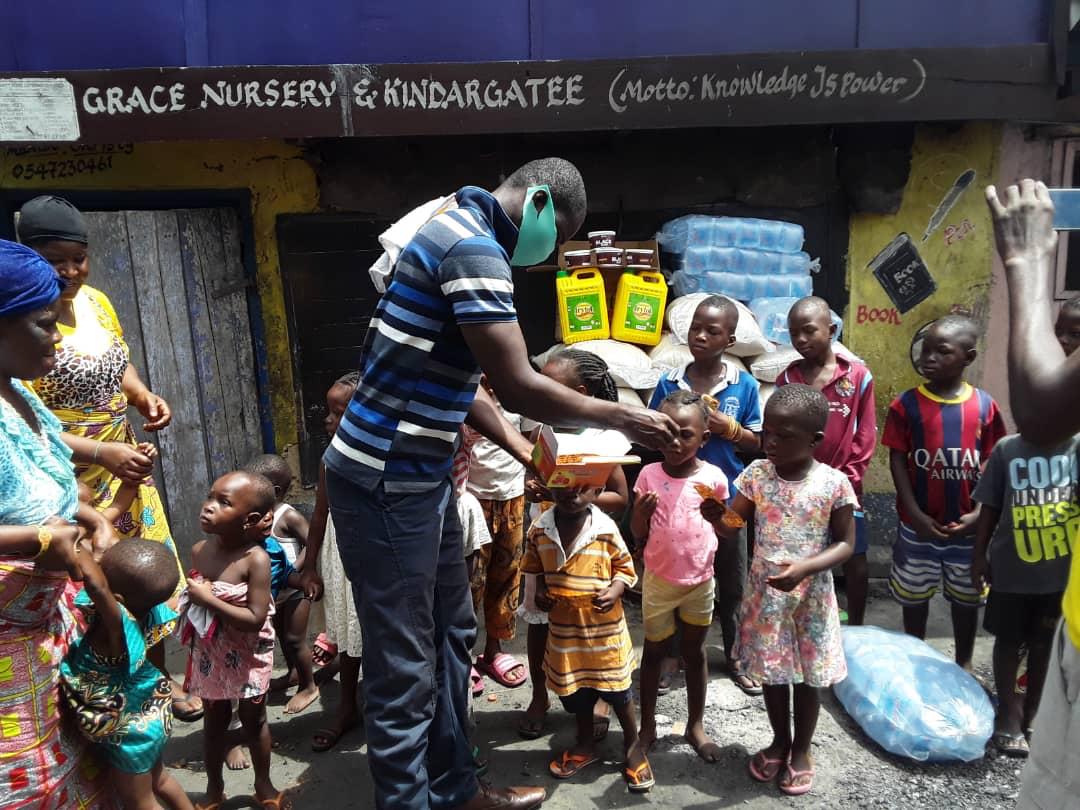Impact of COVID-19 on children in Ghana
COVID-19 has threatened the entire behaviour and socialization of children in Ghana. Besides, it has exposed them to greater risks of exploitation due to the closure of schools and the financial crisis of their parents. On the occasion of the World Day Against Child Labour 2020 on June 12, all the government and non-government agencies should work in a coordinated manner to save the childhood of Ghana's children from COVID-19.

- Country:
- Ghana
Ghana is among the countries most adversely affected by the COVID-19 pandemic in Africa. While a range of efforts has been undertaken across the country to respond to this pandemic and minimize its diverse impacts on every life, children need special and immediate attention.
As per the available data, the children below the age of 14 years alone make up about 37% of the population in Ghana, which is sufficient to start a case for the need of child-friendly approaches in the COVID-19 response system. Also, not all children in Ghana are enjoying their childhood, due to the prevalence of child labor, trafficking, sexual abuse, and other forms of exploitation, for decades. As many as 25% of children below 14 years of age are working - a significant indicator that provides a bird’s eye view of the situation of children in the country. Thus, all actors involved in the COVID-19 response, ranging from government agencies, health and education sectors, local authorities, employers, community leaders, and families need to put children at the center in their approach. This is imperative to ensure that violence against children and exploitation of children is not reproduced, perpetuated, or exacerbated in the context of this pandemic. This will particularly require a targeted response that reflects the needs of all categories of child laborers, those locked at home, and those in hard-to-reach workplaces such as in domestic work and trafficked situations.
In addition, the pandemic calls for radical changes within the socio-cultural environment and traditions in the country, in the context of the response towards children. Ghana's cultural systems like other African countries have widely hinged on collectivism. This implies that children live together, sleep together, eat together, play together, and generally live together. However, these traditional arrangements conflict with the so-called COVID-19 prevention protocol of “social distancing”. This term is alien to African culture that thrives on family support, togetherness and mass activities. This means that most children (in the current community state) will not voluntarily adhere to this safety measure as it is in the DNA to play together and socialize. The situation is further exacerbated with the closure of schools while parents are still working, putting children both at risk of contracting the virus as well as at risk of exploitation and neglect.
A rapid assessment survey conducted by the Trades Union Congress (Ghana), found that employment opportunities for parents are on the decline resulting in the relative loss of much-needed income. As jobs with the hospitality and aviation industry virtually came to a standstill, most casual workers have lost their jobs. The projected GDP growth of 6.8% before COVID-19 is now estimated to fall to 2.6%, and these 2 major economic sectors would also be significantly impacted as lockdown brought businesses to a virtual halt. For children of these casual workers, this would spell hunger, school drop-out, and child labor, among other things.
In the case of agriculture, a significant percentage of the labor force has been lost. This would make children in rural areas, the majority who are at home, to be an easy and cheap target to fill the labor gaps across the agriculture sector - cocoa, palm oil, cotton, fisheries, etc. Knowing that agriculture is one of the hazardous sectors for children to work in, this is a cause of concern that needs urgent action.
To minimize the impact of COVID-19 on children at risk of exploitation in Ghana, stakeholders must consider the following, at the minimum:
- Situating COVID-19 responses within the agenda of promoting decent work, ILO core conventions and the national action plan on child labor (NAP);
- Generating and allocating massive resources for the implementation of the NAP;
- Focusing on the development of child-friendly information, education, and communication (IEC) materials for children;
- Ensuring free access to quality education to all hard-to-reach children; and
- Working with agricultural unions and civil society to develop holistic strategies to tackle child labor in agriculture.
Note: Andrews Addoquaye Tagoe is the Deputy General Secretary for the General Agriculture Workers’ Union (GAWU) in Ghana and the Regional Representation for Anglophone Africa on the Board of Global March Against Child Labour.
(Disclaimer: The opinions expressed are the personal views of the author. The facts and opinions appearing in the article do not reflect the views of Devdiscourse and Devdiscourse does not claim any responsibility for the same.)
- READ MORE ON:
- Children
- child labour
- education
- covid-19
- coronavirus
- child rights
- ghana
- Africa
- west Africa
- FIRST PUBLISHED IN:
- Devdiscourse
ALSO READ
Five Years After the First COVID-19 Reports: Reflecting on Progress, Challenges, and Future Preparedness
WHO Urges China for Transparency on Covid-19 Origins
China's Call for Global Collaboration on COVID-19 Origins
China's COVID-19 Data Contribution Under Microscope
WHO continues to urge China to share data five years after COVID-19

 Andrews Addoquaye Tagoe
Andrews Addoquaye Tagoe









